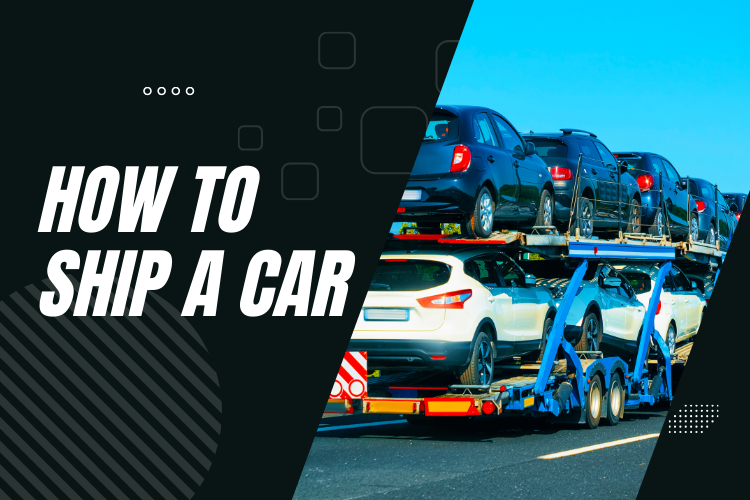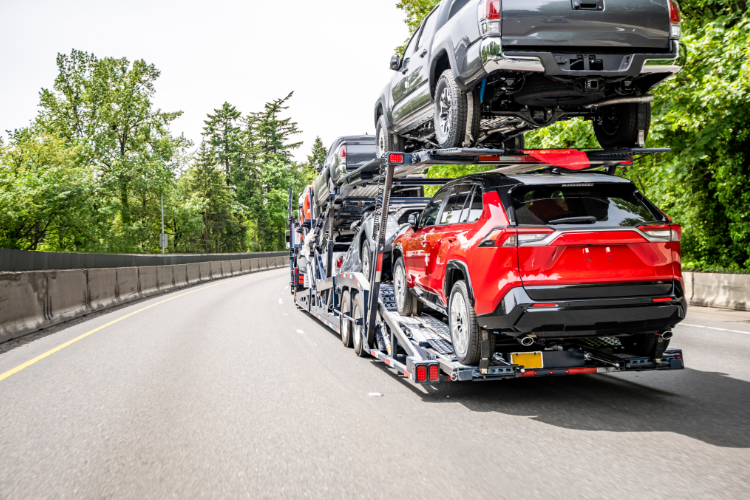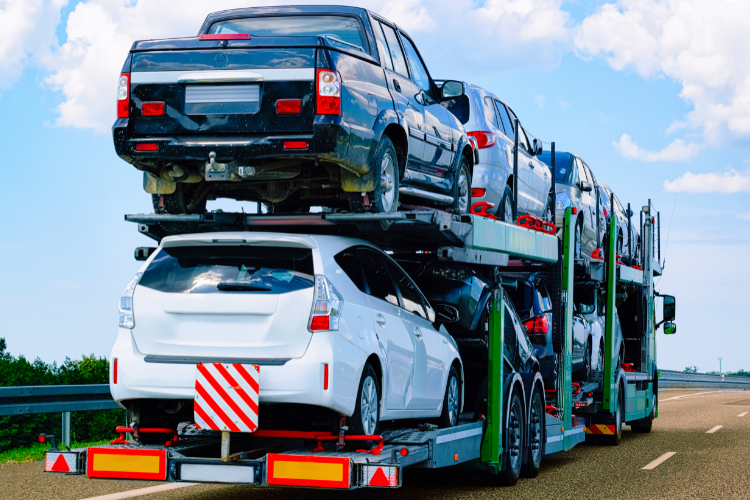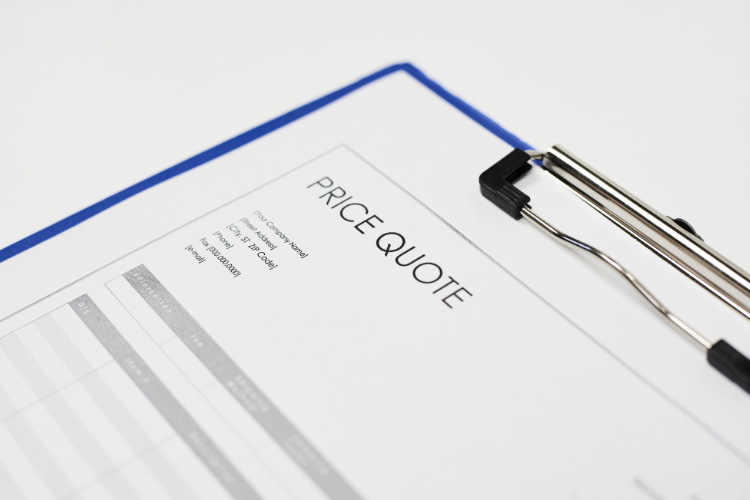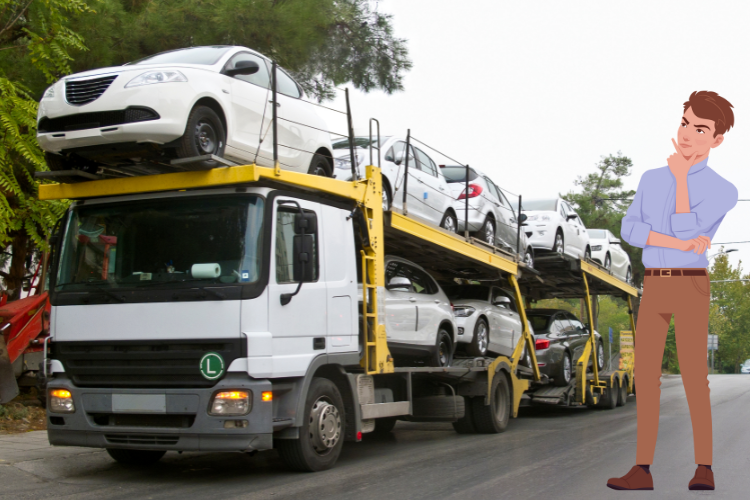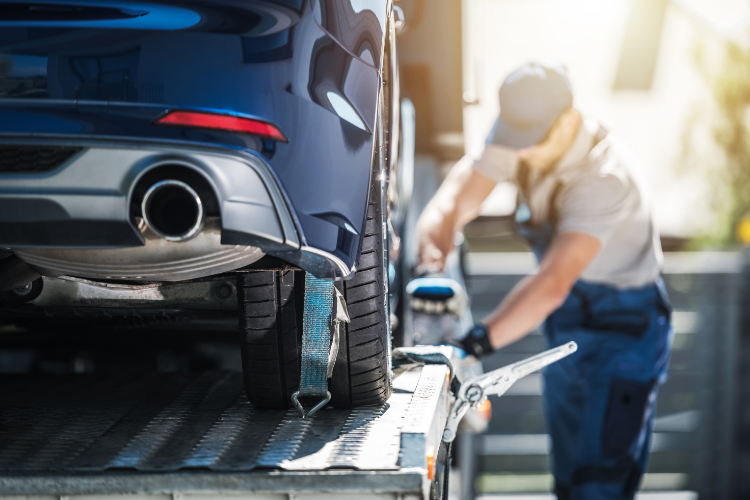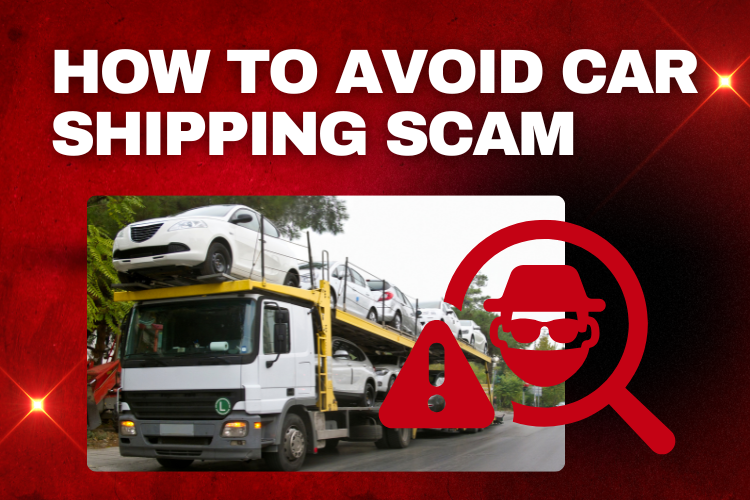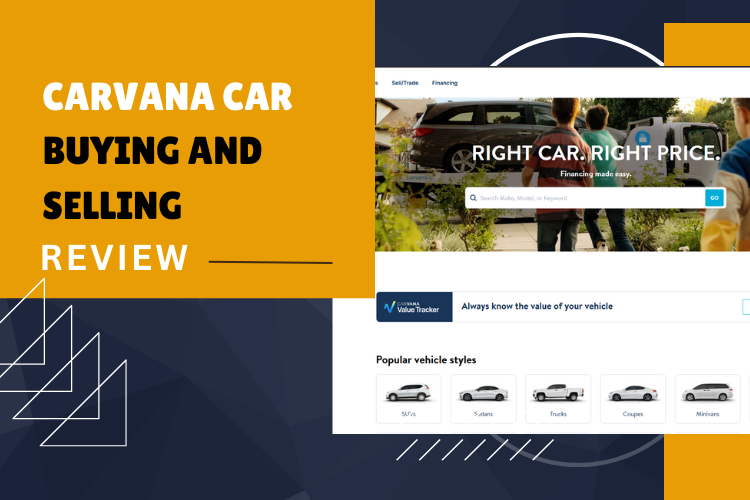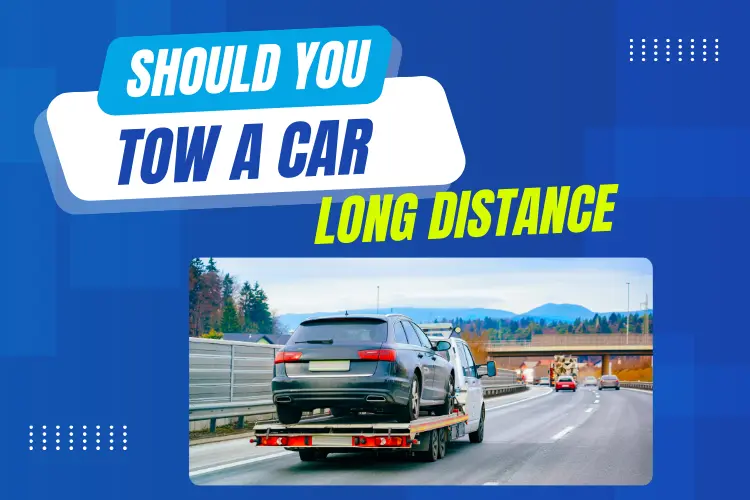If you are planning to relocate to a new city, purchasing a car from out of state, or planning a long-distance move, figuring out how to transport your vehicle safely and affordably can be a major concern. Still, the process can feel overwhelming if you’re doing it for the first time or if it’s been a while.
This comprehensive guide breaks it all down for you. We’ll walk you through every stage of the car shipping process—from getting a quote and choosing the right company, to preparing your vehicle, reviewing key documents, and tracking your shipment.
You’ll also get insights into the pros and cons of shipping versus driving, tips on selecting between open and enclosed transport, and important things to consider when evaluating car shipping costs in 2025. Whether you’re shipping a family SUV, a luxury vehicle, or a classic car, we’re here to help you feel confident, informed, and prepared every step of the way. Let’s explore how to ship a car in 2025 without the stress.
Key Takeaways
- Car shipping is a convenient solution for transporting your vehicle long long distances saving you time, mileage, and stress.
- Hot shot car hauling is ideal for shorter moves, typically under 500 miles, and offers faster delivery with flexible scheduling.
- Costs of cross country vehicle shipping vary based on distance, vehicle type, and timing, so getting a free, no-obligation quote is the best way to plan your budget.
- Sherpa Auto Transport simplifies the process. You can book online or speak with an expert, and we handle all the logistics to ensure a smooth, worry-free experience.
In This Guide:
- How to Ship a Car Step by Step
- How to Choose a Car Shipping Company
- Research Car Transportation Methods
- Get a Quote
- Lock in Date for Shipping
- Review the Bill of Lading
- Why Ship a Car Instead of Driving It?
- How Does Car Shipping Work?
- How Much Does Car Shipping Cost?
- Common Car Shipping Routes
- How to Prepare Your Car for Shipping
- Customer Service and Support
- How to Ship a Car FAQs
How to Ship a Car Step by Step
Shipping your car doesn’t have to be complicated. With a little preparation and the right information, you can ensure a smooth, stress-free process. This guide provides a step-by-step approach to help you navigate the cross-country vehicle shipping journey, from choosing a car shipping company to receiving your vehicle at its destination. Let’s dive into each stage so you can feel confident about your upcoming car shipment.
Research and Find an Auto Transport Company
The first step is finding the right car shipping company to handle your shipment. Start by researching companies online, reading reviews, and checking their credentials, such as licensing and insurance.
Look for a company that specializes in the type of transport you need, whether it’s for a standard vehicle, luxury automobile, or classic car. Make sure the company has a proven track record for reliability, safety, and customer satisfaction. Selecting the right company will set the tone for the entire shipping experience.
Get Quotes
Once you’ve identified a few reputable companies, it’s time to get quotes. Reach out to each company for a detailed quote, which should outline the cost of the transport based on factors like distance, vehicle size, pickup and delivery dates, and the type of service (open or enclosed transport).
Compare quotes carefully, but remember that the cheapest option may not always be the best. Look for a provider that balances cost with quality, ensuring that your vehicle will be transported safely and efficiently.
Lock in Date for Shipping
After choosing a car shipping company, book your shipment date as early as possible. Booking in advance gives you more options for scheduling, which can be especially helpful if you need to meet specific timing requirements.
Once the date is set, confirm any pickup and delivery details with the company, including locations, estimated timelines, and any special arrangements. Securing a confirmed date will help both you and the company plan for a smooth transport process.
Prepare Car for Shipping
Preparing your car for shipment is an essential step that ensures it’s ready for the journey ahead. Start by cleaning your vehicle inside and out so that both you and the carrier can document any existing damage.
Remove all valuables and disable any alarms to avoid complications during transport. If your car has loose parts, consider securing them to prevent any damage in transit. Your Sherpa shipment allows you to ship personal items so long as personal belongings are limited to 100 lbs and stored in the trunk or below the window line. Taking these steps helps protect your vehicle and makes the inspection process easier.
Inspect Vehicle with Carrier
When the carrier arrives to pick up your car, conduct a thorough inspection together. This is known as a pre-shipment inspection, and it’s an important step for documenting the vehicle’s condition before it’s transported.
The carrier will note any existing damage on a Bill of Lading, which you’ll both sign. This document will serve as your reference for comparing the car’s condition upon delivery. A careful inspection helps protect both you and the transport company.
Track Your Vehicle
Most auto transport companies offer tracking options so you can stay updated on your car’s journey. Ask the company about tracking features or updates they provide. At Sherpa Auto Transport, we provide frequent status updates so that you stay informed during the cross country car shipping journey. Staying informed allows you to plan for the delivery and provides peace of mind knowing where your car is during the transport.
Receive and Inspect Car
When your car arrives at the destination, inspect it with the carrier to ensure it’s in the same condition as when it was picked up. Use the original Bill of Lading from the pre-shipment inspection to compare and note any new damage, if applicable. Once you’re satisfied with the vehicle’s condition, sign off on the final paperwork. Congratulations – you’ve successfully shipped your car!
How to Choose a Car Shipping Company
When choosing an auto transport company, it’s essential to look for one that is reputable, reliable, and meets your specific needs. Start by researching companies with strong customer reviews and proven track records for safety and quality service.
Reading reviews on platforms like the Better Business Bureau (BBB) can help you find a car shipping company that prioritizes customer satisfaction and follows through on their promises.
Check for licensing and insurance as well—any reputable company should have proper credentials from the Department of Transportation to ensure they operate legally and safely.
At Sherpa Auto Transport, we stand out due to our commitment to providing an exceptional car shipping experience. Our exclusive Price Lock Promise ensures you won’t be hit with unexpected fees after you book, giving you peace of mind that the quote you receive is the price you’ll pay.
Transparency and honesty are at the heart of our pricing approach, so you can feel confident in the cost from the start. Be sure to check out Sherpa’s guide on how to avoid car shipping scams.
Research Car Transportation Methods
When planning to ship a car across the country, it’s essential to research the various transportation methods available to find the one that best suits your needs. Cross-country car shipping offers two main transport options: open and enclosed transport. Your choice will depend on your vehicle type, budget, and desired level of protection.
Open Transport
Open transport is the most common method used by car shipping companies. In this option, vehicles are loaded onto an open-air carrier, typically the large double-decker trucks you often see on the highway.
This is a cost-effective and reliable way to ship a car across the country, especially for standard vehicles. However, keep in mind that cars transported via open carriers are exposed to the elements, meaning they may be subject to weather, dust, and debris while in transit.
Enclosed Transport
For those who want additional protection for their vehicle, enclosed car transport is an excellent choice. In this method, the car is shipped in a fully enclosed trailer, shielding it from weather conditions, road debris, and any other potential hazards along the way.
Enclosed transport is often used for shipping a classic car, exotic car, luxury vehicles, or motorcycles, anything that requires added care and security during cross-country car shipping.
While it typically comes at a higher cost than open transport, the peace of mind it offers can be well worth the investment, especially for expensive sports cars and other high-end vehicles.
By carefully considering and researching these transport options, you can choose the method that aligns with your needs, budget, and the level of protection you want for your vehicle. This ensures that your car shipping process is as smooth and stress-free as possible, regardless of the distance.
Get a Quote
Getting a quote is one of the first steps in planning to ship your car across the country, as it helps you understand the potential costs and find the best service for your budget.
To get a quote, start by contacting reputable auto transport companies and providing key information about your shipment, such as the pick-up and delivery locations, the type of vehicle you’re transporting, and your preferred shipping dates. Many companies, including Sherpa Auto Transport, offer instant online quotes to simplify the process.
When comparing quotes, remember that the lowest price may not always be the best choice. Some companies may have hidden fees or extra charges that appear later in the process. Sherpa Auto Transport stands out by offering a Price Lock Promise, so the price you’re quoted is the price you’ll pay, no surprises.
Take time to review what each quote includes, such as whether it covers door-to-door service, insurance, or tracking options. By understanding your quote in detail, you’ll be better prepared to choose a transport option that fits your needs and provides you with excellent value.
Lock in Date for Shipping
Once you’ve selected an auto transport company, it’s time to lock in your shipping date. Scheduling your shipment as early as possible gives you more flexibility with timing and allows the company to plan for a smooth pickup and delivery.
Start by discussing potential dates with the company, especially if you have specific timing requirements. Many companies recommend booking at least one to two weeks in advance for standard shipments and even earlier for peak seasons, such as summer or holiday periods.
After setting a date, confirm all the details with your car shipping company, including the pickup and delivery locations, expected transit time, and any additional services you might need.
If you choose Sherpa Auto Transport, you can rely on clear and consistent communication about your scheduled date and updates throughout the process. By securing a date early, you’ll have one less detail to worry about, knowing that your shipment is planned and on track according to your schedule.
Review the Bill of Lading
The Bill of Lading is a critical document in the cross-country car shipping process, serving as a contract between you and the carrier company and a receipt for the vehicle. It outlines the terms of the transport and the condition of your car at the time of pickup.
Carefully review this document before signing it, as it protects you and the carrier. During pickup, conduct a thorough inspection of your vehicle with the carrier and note any existing damage on the Bill of Lading. We also recommend taking photos and videos to document the condition of your car thoroughly.
When your car is delivered, use this document again to check for any new damage that might have occurred during transit. By comparing the car’s condition at pickup and delivery, you can address any issues with the carrier before you sign off on the final paperwork.
At Sherpa Auto Transport, we encourage customers to take the time to review the Bill of Lading to ensure full transparency and satisfaction. This document is key to a smooth and secure car shipping experience, helping to ensure you and your vehicle are protected throughout the process.
Why Ship a Car Instead of Driving It?
Choosing to ship a car instead of driving it across the country can save time, reduce stress, and potentially protect your vehicle from added wear and tear. Long road trips can add thousands of miles to your odometer, which can affect the car’s resale value and require more frequent maintenance. Cross-country car transport, on the other hand, allows your car to arrive at its destination without the risks of breakdowns, accidents, or increased depreciation.
Car shipping is also convenient for those moving long distances or relocating for work or school, as it allows you to focus on the transition without worrying about a long drive. Shipping your car also offers flexibility, especially with door-to-door service, which lets you choose specific pickup and delivery locations.
This convenience is particularly helpful for cross-country moves or seasonal travelers, like snowbirds, who prefer not to drive their cars across multiple states. Overall, shipping a car can save you time, protect your vehicle, and make long-distance moves more manageable.
How Does Car Shipping Work?
Car shipping is a straightforward process when broken down into a few simple steps:
- Get a Quote: Contact reputable car shipping companies, like Sherpa Auto Transport, to receive an accurate quote based on your vehicle, route, shipping method, preferred pickup and delivery dates, and other details.
- Choose a Shipping Date: Lock in your cross-country car transport early to secure your preferred timing and ensure a smooth pickup and delivery.
- Prepare Your Vehicle: Clean your car, remove personal items, and take photos to document its condition before shipment.
- Vehicle Inspection at Pickup: Meet with the carrier to inspect your car and sign the Bill of Lading, which outlines its condition.
- Track Your Shipment: Stay informed with updates or tracking options provided by the transport company during transit.
- Receive and Inspect Your Vehicle: Upon delivery, inspect the car with the carrier and compare it to the Bill of Lading. Address any new damage before finalizing paperwork.
By following these steps, you can ensure a smooth cross-country car shipping experience from start to finish.
How Much Does Car Shipping Cost?
Car shipping rates vary widely, with average costs ranging from 45 cents to $1.50 per mile depending on factors like distance, vehicle type, and transport method. Shorter trips (under 500 miles) usually cost more per mile—often $1 or more—while longer distances (over 1,500 miles) bring that average down to around 50–75 cents per mile.
Other variables like fuel prices, seasonal demand, and carrier availability also affect pricing. The best way to get an accurate cost is by using our instant quote tool or contacting our team for a customized quote based on your specific shipment.
Factors Impacting Car Shipping Cost
When planning to ship a vehicle, several factors influence the overall cost. Here’s a breakdown of the main elements that can affect pricing:
- Shipping Distance: Longer trips cost more overall, but they often have a lower per-mile rate. Shorter distances may have a higher per-mile cost due to compressed fixed costs.
- Pickup and Drop-off Locations: Urban areas typically cost less due to easy access to major highways. Rural or remote locations, however, may increase the price as carriers often need to travel out of their way.
- Trailer Type: Open transport is the most budget-friendly and common option, while enclosed transport provides added protection for luxury or classic cars at a premium cost.
- Pickup Window: Flexibility with your pickup date can save you money. A wider window allows carriers to fit your shipment into their schedules, while urgent pickups come at a higher price.
- Vehicle Size: Larger vehicles like SUVs and pickup trucks cost more to ship due to the additional space and weight they occupy on the carrier.
- Vehicle Condition: Operational vehicles are easier and cheaper to load. Non-operational cars require special equipment, which increases shipping costs.
- Time of Year: Peak seasons, like January or summer months, often see higher demand, which can lead to increased prices for shipping services.
Common Car Shipping Routes
Shipping a car across the country is a convenient way to transport your vehicle without the wear and tear of a long drive. Whether you’re relocating, buying a car from out of state, or heading to a seasonal home, understanding the most popular car shipping routes can help you plan for a smooth transport experience.
Below are some of the top car shipping routes, along with links to detailed route information:
- California to Florida: Learn more about shipping from California to Florida
- California to New York: Find out what to expect when shipping from California to New York
- California to Texas: Get details on shipping a car from California to Texas
Each of these routes has unique factors that may influence pricing and transit times, such as distance, seasonal demand, and pickup/drop-off locations. Working with a reputable company like Sherpa Auto Transport ensures that your vehicle is handled with care every step of the way.
How to Prepare Your Car for Shipping
Once you have your pickup date, you must prepare your car for shipment. Here’s a list of steps to take to ensure your vehicle’s in prime shape for cross country car shipping:
- Wash your car. A thorough wash will help you find any dings, scratches, or other cosmetic issues. If you’re shipping internationally, some countries won’t let your car pass quarantine if it wasn’t washed before leaving port.
- Inspect your vehicle for existing damage. Once your car is clean, you’ll have a better chance of discovering any cosmetic damage. Take photos of any scratches or dents before you have your car shipped. This way, if any damage occurs during shipping, you can show the auto transport company what damage was already present.
- Remove valuables and limit personal items. Except in the case of ocean transport, your shipment includes up to 100 lbs of personal items stored in the trunk or below the window line. Make sure to remove any valuables from the vehicle since Sherpa and the carrier are not responsible for items left in the vehicle during transport.
- Secure or remove loose parts. Any removable or loose parts (like a radio antenna, hood ornament, or spoiler) should be removed and placed in the trunk to avoid damage. If possible, you should also fold in your side mirrors and ensure your sunroof or convertible top is fully closed.
- Do a routine maintenance check. Be aware of any mechanical issues or leaks, which can delay your car shipment. Top off all fluids, fully inflate your tires, make sure your car’s battery has a charge, and record your current mileage.
- Empty your gas tank. You should keep no more than a quarter tank of gas in the vehicle, as a full tank adds weight.
- Make an extra set of keys. The trucker will need keys to drive your car on and off the carrier truck, so make sure you give them an extra key or have a spare with you.
Customer Service and Support
Sherpa is known for our top-notch customer service. Our team is available to guide you every step of the way, answering questions and providing updates throughout the transport process.
Whether you’re moving your car across the country or shipping a vehicle for a special event, we provide nationwide, door-to-door transport, making it convenient to pick up and deliver your vehicle wherever you need it.
Choosing a reliable auto transport company like Sherpa ensures a stress-free experience, letting you focus on what’s most important while we take care of your vehicle.
How to Ship a Car FAQs
Is it worth it to ship a car?
If you’re moving over 500 miles, shipping your car across the country is generally safer and more convenient than driving. For shorter distances, driving your car to your destination may be more affordable.
How much does it cost to ship a car across the country?
Shipping a car from New York City to Los Angeles generally costs between $1,325 and $1,625, while shipping from Washington, D.C., to Los Angeles ranges from $1,225 to $1,475. However, many factors affect how much a cross-country auto transport costs, including market demand and the type of service selected.
What is the safest way to ship a car?
The safest way to ship a car is using enclosed transport (sometimes referred to as covered transport). The enclosed trailer will protect your car from hazards like road debris and poor weather conditions.
How long does it take to ship a car?
Depending on the delivery location and total mileage of your transport, it can take anywhere from one to 14 days to ship a car.

